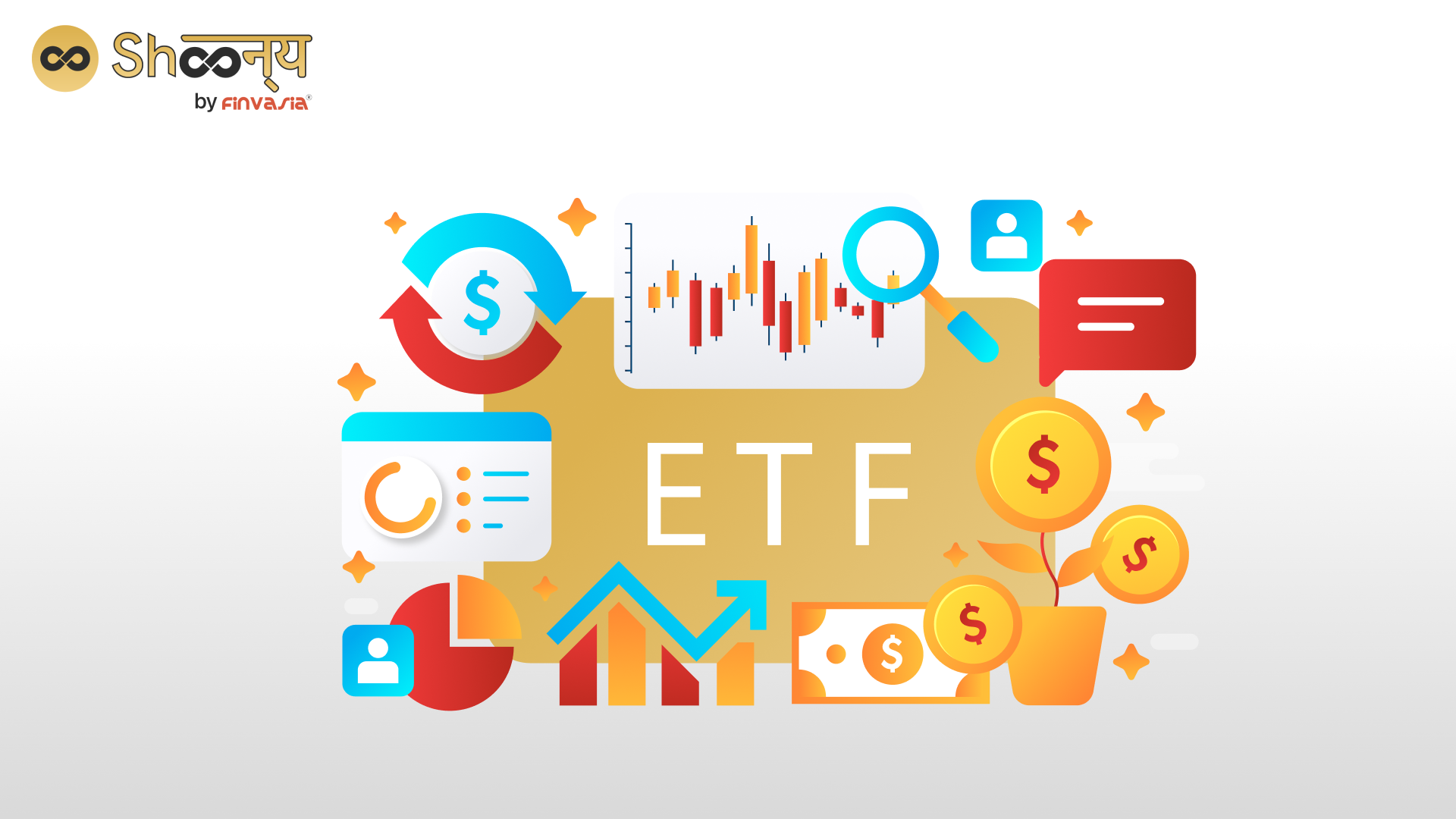In the dynamic landscape of Indian finance and investment, exchange traded Funds (ETFs) have gained significant traction. Commodity ETFs, a distinct subset of ETFs, offer a unique way for Indian investors to diversify their portfolios by tapping into the rich tapestry of the Indian economy. In this comprehensive guide, we will take a look into the world of Commodity ETFs in India, exploring their significance, investment strategies, and top Indian options.
Understanding Commodity ETFs in the Indian Economy
Demystifying Commodity ETFs
Commodity ETFs in India do not provide exposure to commodity derivatives, such as futures and options contracts. These contracts are based on the price movements of the underlying commodities, but do not involve the actual delivery or ownership of the commodities .These commodities can range from agricultural products like grains and spices to valuable resources such as metals and oil, all contributing to India’s economic vibrancy. However, choosing the best commodity ETFs in india is a task that needs proper research by every individual planning to start with commodity ETYF investments.
Why Commodity ETFs Matter in India
Commodity ETFs in India hold particular relevance due to the nation’s diverse and resource-rich economy. They serve various purposes, from hedging against inflation to capitalizing on the country’s growth story. Investors can use these ETFs to benefit from the fluctuations in commodity prices while navigating the nuances of the Indian market.
Key Considerations for Investing in Indian Commodity ETFs
Selecting the Right Indian Commodity ETF
Before venturing into Indian Commodity ETFs, consider the following factors:
- Types of Indian Commodities: These ETFs cover a gamut of Indian commodities, including spices like cardamom and turmeric, precious metals like gold, and crucial resources like crude oil. Understanding India’s unique commodity landscape is crucial for strategic investing.
- Diversification within India: While some Indian Commodity ETFs focus on a single commodity, others offer diversified exposure to a basket of Indian commodities. Your investment strategy should align with the specific opportunities in the Indian market.
- Risk Profile: Assess your risk tolerance and investment goals in the context of the Indian economy. Commodity ETFs can exhibit volatility, so it’s essential to tailor your investments accordingly.
Check out the best commodity ETFs and start at zero brokerage!
Risk Management with Indian Commodity ETFs
In the Indian economic context, Commodity ETFs can be influenced by various factors unique to the country. Understanding contango and backwardation, two states of commodity markets is essential. These conditions can impact the performance of Indian Commodity ETFs and should be closely monitored.
To manage these risks, some Indian Commodity ETFs employ strategies that mitigate the effects of contango. These approaches aim to optimise costs while still effectively tracking the underlying Indian commodities.
Conclusion
In conclusion, Commodity ETFs present a gateway to India’s multifaceted and resource-rich economic landscape. Whether you aim to hedge against inflation or seize opportunities within India’s expanding economy, these investment tools can serve as valuable components of your portfolio. By comprehending the distinctive opportunities and risks associated with the Indian market, you can make judicious investment choices that align with your financial aspirations within the context of India’s dynamic economy. Wishing you successful and fruitful investments in the diverse realm of Indian Commodity ETFs!
FAQs – Addressing Common Queries related to Commodity ETFs in India
ETFs in India are pooled investment securities that track specific indices or asset classes. They offer a convenient way to diversify your Indian investment portfolio. ETFs are traded on stock exchanges, just like individual stocks.
To purchase Indian Commodity ETFs, you need a brokerage account. Find the ticker symbol of the ETF you’re interested in, place a purchase order, and complete the transaction through your brokerage.
Indian Commodity ETFs offer exposure to India’s resource-rich economy, allowing investors to benefit from commodity price movements within the country.
In India, there are several commodity-based ETFs, including Reliance ETF Gold BeES, ICICI Prudential Gold ETF, and SBI ETF Gold, offering exposure to commodities like gold.
Whether commodity ETFs are a good investment depends on your financial goals and risk tolerance. They can provide diversification and potential gains but come with market volatility, so careful consideration is essential.
An Exchange-Traded Fund (ETF) for commodities essentially functions as a financial instrument that mirrors the performance of various commodities. This allows investors to participate in commodity markets without the need to possess the physical assets themselves.
Selecting the ideal ETF to invest in within the Indian market hinges on your specific investment objectives. It’s essential to undertake thorough research and consider ETFs that are in line with your goals. You can explore options such as precious metals ETFs, sector-specific ETFs, or diversified ETFs.
______________________________________________________________________________________
Disclaimer: Investments in the securities market are subject to market risks; read all the related documents carefully before investing.

